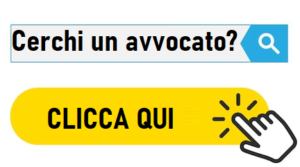In the ever-expanding landscape of social media, TikTok has emerged as a dominant force, revolutionizing the way users consume and create content. With its short-form videos and viral trends, TikTok has captured the attention of millions worldwide. However, beyond its entertainment value, TikTok also holds economic significance, particularly concerning video downloads. In this article, we delve into the economics of TikTok video downloads, exploring the various factors that influence this phenomenon and its implications for creators, users, and the platform itself.
Monetization Opportunities for Creators
For content creators on TikTok, the ability to monetize their videos is a key consideration in their overall strategy. While TikTok itself does not directly compensate creators for their content, the platform provides opportunities for monetization through various means:
-
Brand Partnerships and Sponsorships: Creators with large followings and high engagement rates can collaborate with brands and advertisers to promote products and services through sponsored content. Brands are often willing to pay creators for featuring their products in TikTok videos, leveraging their influence and reach to reach target audiences.
-
Merchandise Sales: Many TikTok creators capitalize on their popularity by launching their own merchandise lines, ranging from clothing and accessories to digital products and subscriptions. By leveraging their fan base, creators can generate revenue from merchandise sales and diversify their income streams.
-
Donations and Gifts: TikTok offers features like TikTok Live and TikTok Gifts, allowing users to donate virtual gifts to their favorite creators during live streams or as a form of appreciation for their content. Creators can earn virtual gifts, which can be converted into real currency through TikTok's virtual currency system.
-
Creator Fund and Ad Revenue: TikTok recently introduced the TikTok Creator Fund, a program that enables eligible creators to earn money based on their video performance and engagement metrics. Additionally, creators can earn ad revenue through TikTok's advertising platform, with a portion of the revenue shared with creators whose videos are featured in ads.
Implications for Users and Consumers
From a user perspective, downloading TikTok videos offers several benefits, including:
-
Offline Viewing: Users can download TikTok (https://tikd.cc/en/) videos for offline viewing, enabling them to access content without an internet connection. This feature is particularly valuable for users with limited data plans or those in areas with poor connectivity.
-
Content Preservation: Downloading TikTok videos allows users to save and preserve their favorite content, ensuring that it remains accessible even if it is deleted or removed from the platform. Users can create personal collections of videos, curate playlists, and revisit their favorite moments at any time.
-
Sharing and Reposting: Users can download TikTok videos and share them with friends, family, and followers on other social media platforms or messaging apps. This facilitates content discovery, promotes virality, and expands the reach of TikTok content beyond the platform.
-
Accessibility and Inclusivity: Video downloading enhances accessibility for users with disabilities, allowing them to customize their viewing experience according to their unique needs and preferences. Users can adjust playback speed, enable captions, and use assistive technologies to enhance their interaction with TikTok content.
Platform Economics and Revenue Generation
From a platform perspective, TikTok video downloads contribute to its overall ecosystem and revenue generation through various channels:
-
Increased User Engagement: Video downloads enhance user engagement and retention on the TikTok platform by providing users with additional ways to consume and interact with content. This increased engagement drives ad impressions, user interactions, and overall platform activity, which in turn generates revenue for TikTok through advertising.
-
Data Monetization: TikTok collects vast amounts of user data, including preferences, behaviors, and interactions, which can be monetized through targeted advertising and personalized recommendations. Video downloads contribute to data collection efforts by providing insights into user content preferences and consumption patterns, enabling TikTok to optimize its algorithms and ad targeting strategies.
-
Premium Features and Subscriptions: TikTok may explore monetization strategies related to video downloads, such as offering premium features or subscription-based services that provide additional benefits to users who download videos. These features could include ad-free viewing, advanced download options, or exclusive content access, providing users with added value and incentivizing them to pay for premium services.
-
Partnerships and Licensing: TikTok may explore partnerships and licensing agreements with content creators, media companies, and other stakeholders to monetize downloaded videos. This could involve revenue-sharing arrangements, content distribution deals, or licensing agreements for user-generated content, generating additional revenue streams for TikTok and its partners.
Challenges and Considerations
While TikTok video downloads offer numerous economic opportunities, they also present challenges and considerations:
-
Copyright and Intellectual Property: Video downloads raise concerns about copyright infringement and intellectual property rights, particularly when users download and redistribute content without proper authorization. TikTok must enforce copyright policies and educate users on the importance of respecting creators' rights and permissions when downloading videos.
-
Data Privacy and Security: TikTok must prioritize data privacy and security when implementing video downloading features, ensuring that user data is protected and encrypted during transmission and storage. Users should have control over their downloaded content and the ability to delete or manage their download history to protect their privacy.
-
Platform Monetization Strategies: TikTok must carefully balance its monetization strategies with user experience and satisfaction to avoid alienating users or detracting from the platform's value proposition. Any monetization features related to video downloads should provide tangible benefits to users while aligning with TikTok's overall business objectives and values.
-
Regulatory Compliance: TikTok must comply with relevant laws, regulations, and industry standards governing data privacy, content moderation, and intellectual property rights when implementing video downloading features. This includes adhering to copyright laws, safeguarding user data, and maintaining transparency and accountability in its business practices.
In conclusion, the economics of TikTok video downloads encompass a complex ecosystem of creators, users, and the platform itself, with implications for revenue generation, user engagement, and content monetization. Video downloads offer economic opportunities for content creators through brand partnerships, merchandise sales, donations, and ad revenue sharing, while enhancing accessibility and user experience for consumers.
From a platform perspective, video downloads contribute to increased user engagement, data monetization, and revenue generation through advertising, premium features, and partnerships. However, TikTok must address challenges related to copyright, data privacy, platform monetization, and regulatory compliance to ensure that video downloads benefit all stakeholders while maintaining the integrity and sustainability of the platform.
By exploring the economics of TikTok video downloads and addressing these considerations, TikTok can continue to innovate, evolve, and thrive as a leading social media platform, driving value for creators, users, and the broader digital ecosystem.


